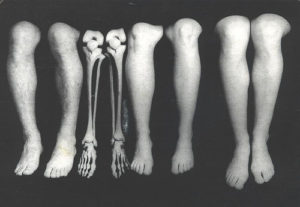Theresa Kintz
Kaczynski’s story represents a parable:
Once upon a time there was a continent covered with beautiful pristine wilderness, where giant trees towered over lush mountainsides and rivers ran wild and free through deserts, where raptors soared and beavers labored at their pursuits and people lived in harmony with wild nature, accomplishing every task they needed to accomplish on a daily basis using only stones, bones and wood, walking gently on the Earth. Then came the explorers, conquerors, missionaries, soldiers, merchants and immigrants with their advanced technology, guns, and government. The wild life that had existed for millennia started dying, killed by a disease brought by alien versions of progress, arrogant visions of manifest destiny and a runaway utilitarian science.
In just 500 years, almost all the giant trees have been clear-cut and chemicals now poison the rivers; the eagle has faced extinction and the beaver’s work has been supplanted by the Army Corps of Engineers. And how have the people fared? What one concludes is most likely dependent on how well one is faring economically, emotionally and physically in this competitive technological world and the level of privilege one is afforded by the system. But for those who feel a deep connection to, a love and longing for, the wilderness and the wildness that once was, for the millions now crowded in cities, poor and oppressed, unable to find a clear target for their rage because the system is virtually omnipotent, these people are not faring well. All around us, as a result of human greed and a lack of respect for all life, wild nature and Mother Earth’s creatures are suffering. These beings are the victims of industrial society.







